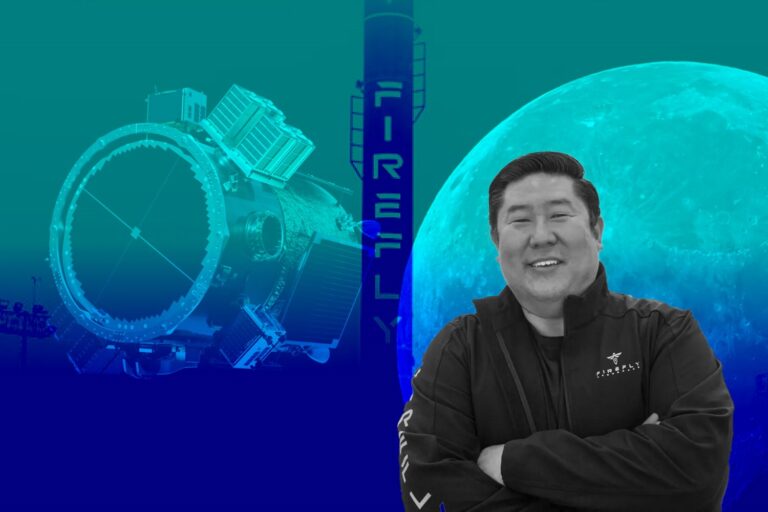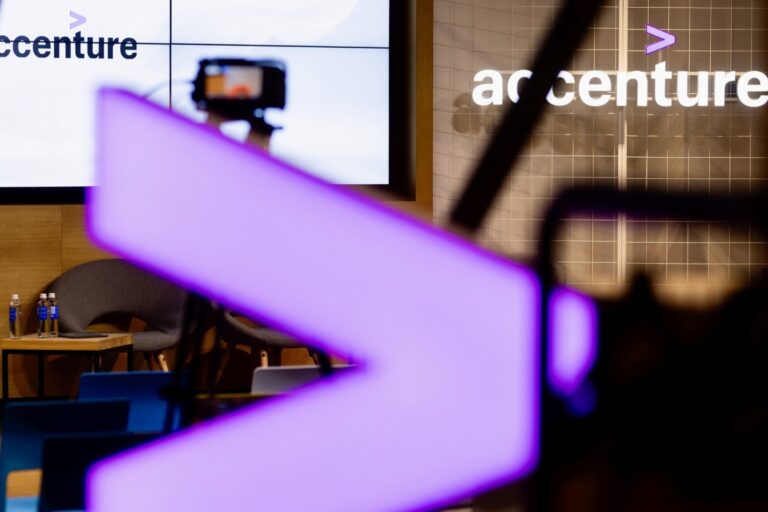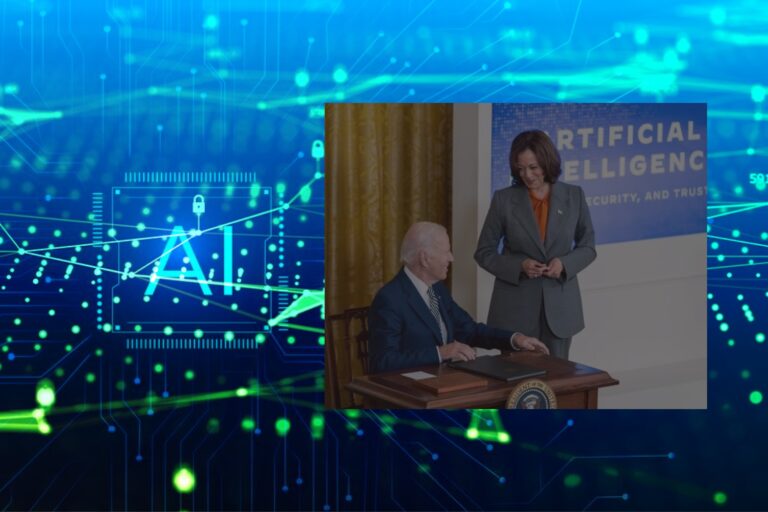From Catalyst to Powerhouse: Anduril’s Journey in Elevating Defense Technology

In an era where technology is shaping the future at an unprecedented pace, certain companies stand out for their commitment to leveraging cutting-edge advancements to make a positive impact on the world.
Anduril Industries is one such remarkable company, leading the charge in using technology to enhance global security and safety. With a focus on defense products and border surveillance, Anduril’s innovative solutions integrate artificial intelligence, computer vision, and sensor fusion to provide advanced situational awareness for military agencies and government personnel.
Let’s delve into the captivating stories of Anduril’s endeavors as they work relentlessly to create a better and safer world through their tech-driven initiatives.
Palmer Luckey’s Rough Journey: From VR Researcher to Defense Whisper Guy
“I started my career when I founded a virtual reality company called Oculus VR. I sold that to Facebook for a few billion dollars. And when I got fired, I started Anduril so that I could work on autonomous systems for National Security” said Palmer Luckey.
Palmer Luckey’s journey into the world of technology and virtual reality is a testament to his passion, ingenuity, and determination. Growing up in Long Beach, California, Luckey’s middle-class background provided him with a solid foundation. His early fascination with electronics and engineering led him to explore the realm of virtual reality, sparking a lifelong pursuit of pushing the boundaries of immersive experiences.
Luckey’s deep involvement with VR began at a young age when he spent countless hours experimenting with VR headsets and unraveling their inner workings. His insatiable curiosity drove him to amass a collection of over 50 head-mounted displays, studying and learning from each one. During his teenage years, at just 16 years old, he ventured into designing and constructing his own VR headsets, using his own funds to fuel his research and development endeavors.
Luckey’s non-traditional educational path, which involved homeschooling and community college courses, allowed him to dedicate his time and energy to his passion for engineering and VR. However, despite his exceptional talents and achievements, he faced difficulties in gaining admission to top engineering universities, highlighting the challenges that young innovators can encounter in the academic system.
Undeterred by setbacks, Luckey’s commitment to VR innovation only grew stronger. He poured his efforts into creating a groundbreaking VR headset, tirelessly iterating through prototypes and incorporating lessons learned along the way. Finally, with the development of the sixth-generation headset, he achieved a breakthrough and named it the Rift.
Recognizing the need for resources and support to bring his vision to fruition, Luckey sought to secure funding for his VR venture. This marked a turning point in his journey when Peter Thiel’s Founders Fund, renowned for backing audacious and unconventional projects, expressed their confidence and provided crucial support. This initial investment, followed by subsequent fundraising rounds that attracted significant capital from prominent investors like Spark Capital and Andreessen Horowitz, propelled Oculus VR forward.
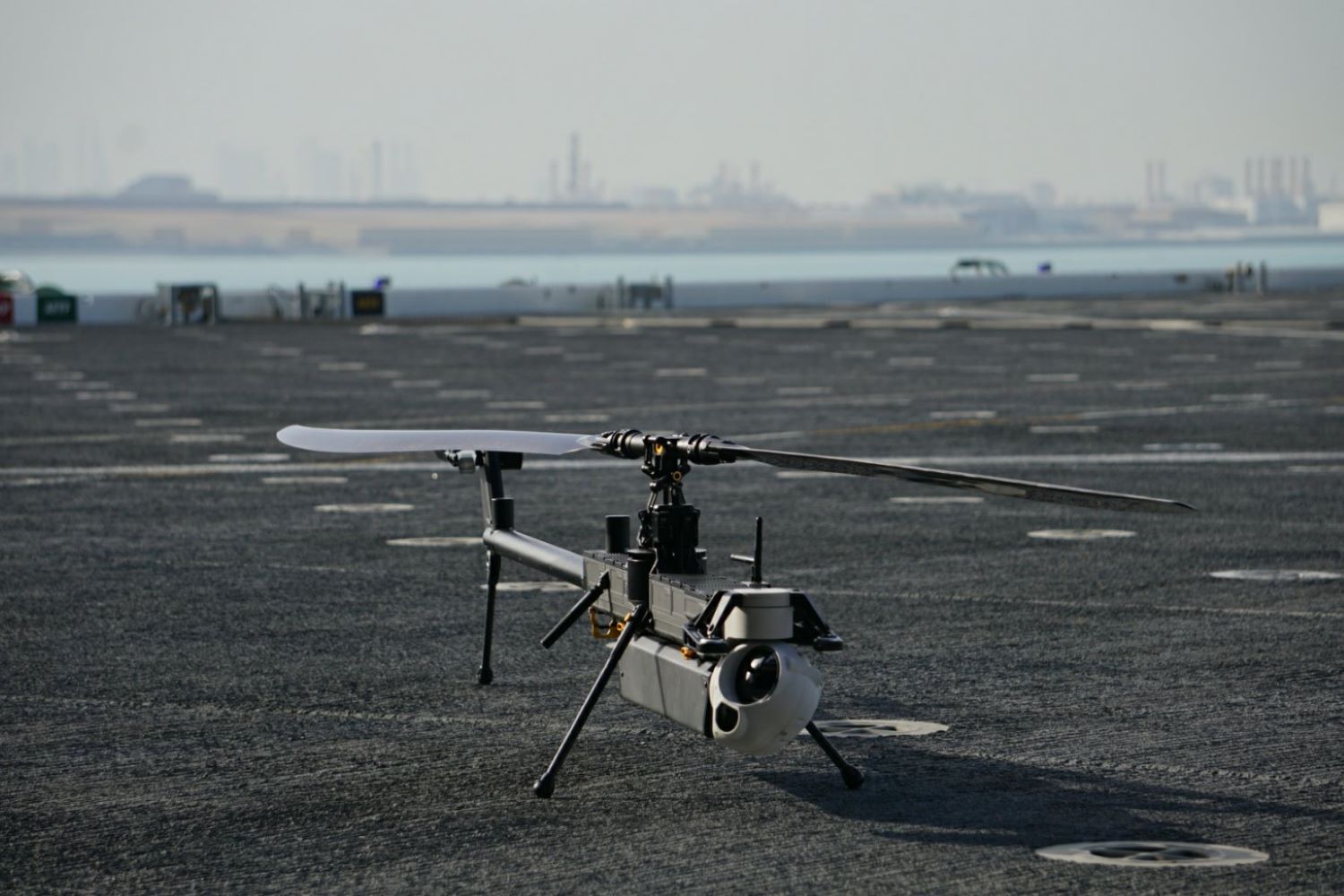
Luckey and his team worked relentlessly to refine the design of the Rift, distributing developer kits and preparing for its eventual launch to consumers. However, before the first consumer version could be released, Oculus VR caught the attention of Facebook, which led to a consequential acquisition.
The Facebook acquisition of Oculus VR was indeed a significant event in the company’s history and generated mixed reactions within the community. The acquisition took place in March 2014, when Facebook acquired Oculus VR for approximately $2 billion.
This move surprised many, as Oculus VR was still in the process of preparing for the consumer launch of its first VR headset. The acquisition was met with a degree of skepticism and criticism, primarily from those who were concerned about the influence of a large social media company on the future of virtual reality.
Despite the shared goal of bringing virtual reality to a wide audience, Palmer Luckey and Facebook encountered obstacles along the way. Within the Oculus Community, discussions and debates arose regarding Facebook’s potential requirements for Rift users, such as the need for a Facebook account or tracking of VR app usage for targeted advertising.
However, these debates became less prominent when the Daily Beast published an article in September of 2016, revealing that Luckey had made a $10,000 donation to a pro-Donald Trump political action committee.
The donation became a source of controversy and sparked public debate about Luckey’s political affiliations and their potential impact on Oculus and Facebook. It raised concerns about the perception of bias and political influence within the company, given Facebook’s position as a leading social media platform.
This led to speculation that the decision to let Luckey go was driven by Facebook’s desire to distance itself from any potential negative association and to maintain a neutral stance in the political landscape.
After being fired from Facebook, Palmer Luckey took some time off to regroup and consider his next steps, and he landed on Anduril.
“I had already actually purchased some warehouse space and started buying machine shop stuff. So, I, I knew I was doing actually, before I was a, it took Facebook a while to fire me, they told me in January that. I was being fired and then it takes a long time to fire somebody who’s so deeply entangled with the company.” said Luckey.
Luckey saw an opportunity to bring his entrepreneurial mindset and expertise in emerging technologies to the defense sector. He believed that by leveraging his knowledge in areas such as artificial intelligence, autonomous systems, and data analysis, he could develop solutions that would address critical defense challenges more efficiently and effectively.
“I started Anduril because I saw an opportunity and also a big problem. The problems were the major defense primes in the United States, Lockheed Northrop, or Arthon. We’re not equipped with the talent and incentives. They needed to build autonomous systems core technology like sensor Fusion and mesh networking.” – Luckey stated.
Luckey’s approach with Anduril was radically different from traditional defense contractors. Instead of solely bidding on existing projects, Anduril aimed to tackle unexplored frontiers and develop technology that the Department of Defense (DoD) was not yet aware of or utilizing. This included areas such as drone networks, sensor towers, and artificial intelligence systems designed to integrate and enhance defense capabilities.
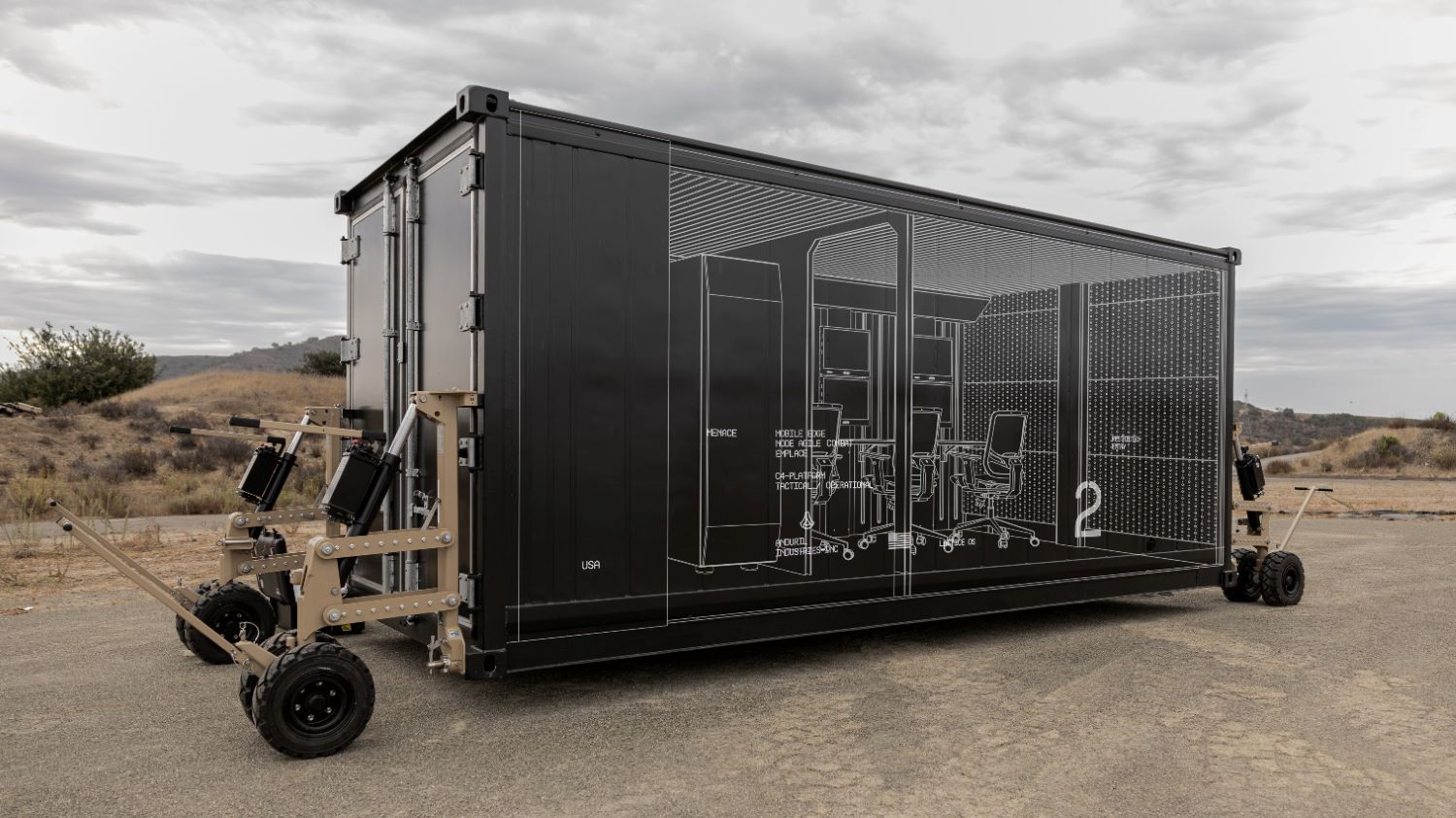
Defense Valley: Can They Make It
Anduril Industries, under the leadership of Palmer Luckey, has established itself as a prominent defense technology company with a strong focus on innovation. Unlike consumer technology companies with limited involvement in defense work, Anduril’s core mission revolves around developing AI-powered hardware and software specifically tailored to the needs of the U.S. Department of Defense and ensuring the safety of American allies.
“We’re a defense technology company first, we’re not a consumer technology company dabbling in defense work.. I think that we have a few big competitive ends.” Luckey said.
One of the key factors that set Anduril apart is its exceptional team, comprised of experts in autonomy, computer vision, machine learning, and networking. Many of these team members come from traditional defense primes like Lockheed Martin and Raytheon, lending Anduril access to top talent in emerging technologies. This multidisciplinary team forms the foundation for Anduril’s competitive advantage, as they possess the expertise necessary to drive innovation and disrupt the stagnant defense technology market.
Luckey emphasizes the importance of showcasing strength in the defense industry. By leveraging their team’s expertise and challenging the slow-moving nature of established players, Anduril aims to demonstrate its capabilities and credibility in delivering groundbreaking solutions for critical defense challenges. This approach resonates with investors who recognize the potential for disruptive innovation in an industry ripe for change.
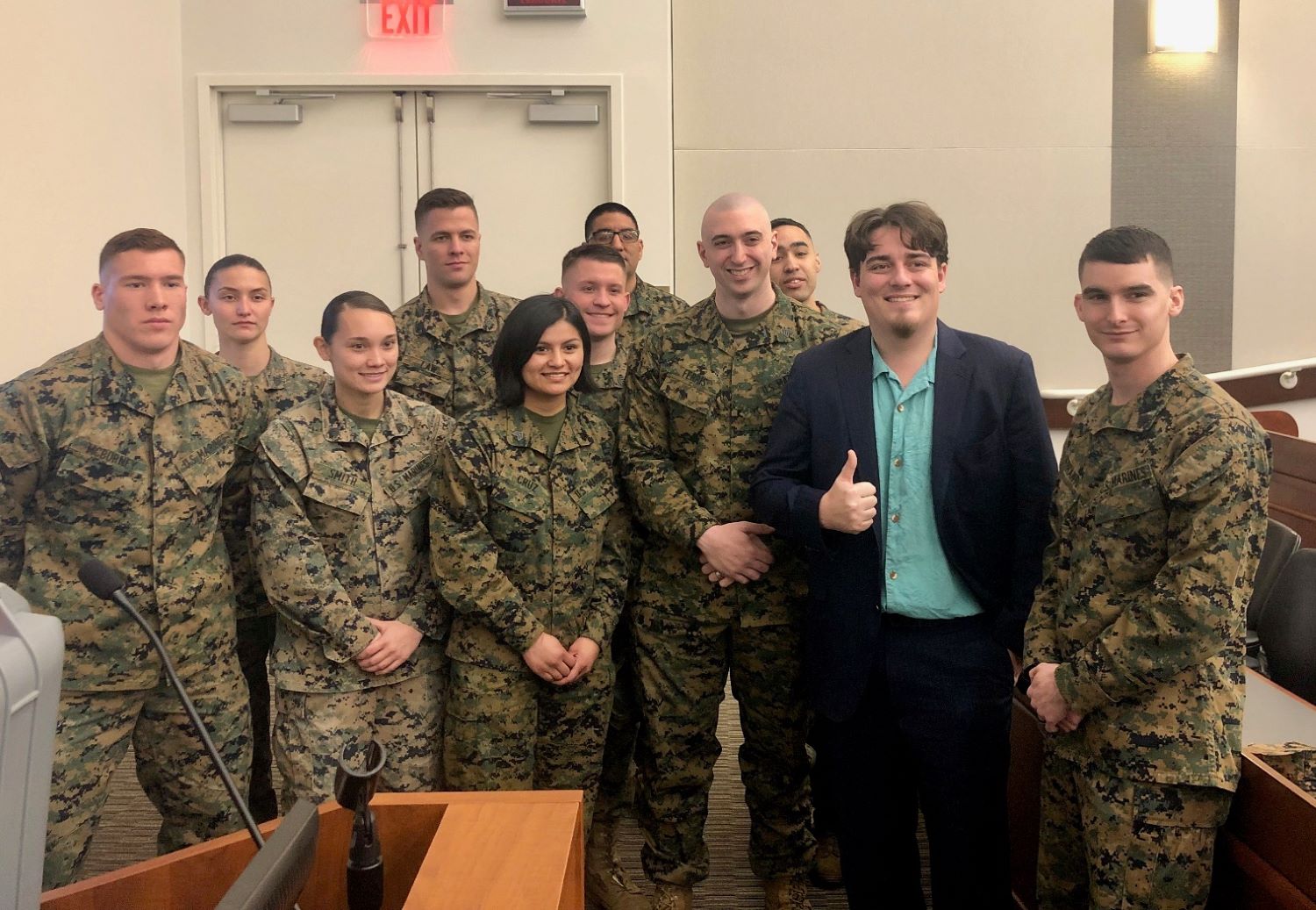
In addition, Anduril’s strategic approach extends beyond organic growth, as the company actively engages in acquiring other defense startups to expand its product suite.
In the past eighteen months alone, Anduril has made three notable acquisitions: Area-I, Copious Imaging, and Dive Technologies. Each of these acquisitions has contributed valuable assets to Anduril’s portfolio. Area-I brings expertise in unmanned aerial systems (UAS) with its Altius UAS, while Copious Imaging adds their innovative WISP technology to enhance Anduril’s imaging capabilities.
Furthermore, Dive Technologies’ Dive-LD autonomous underwater vehicle (AUV) strengthens Anduril’s capabilities in underwater exploration and surveillance. By strategically acquiring these businesses, Anduril aims to further solidify its position as a comprehensive provider of cutting-edge defense technologies across multiple domains.
Thanks to its established connections with government buyers, Anduril has the advantage of maximizing the revenue potential of the technologies it acquires. A prime illustration of this is seen in the case of Dive Technologies, which had an annual revenue of less than $1 million prior to being acquired by Anduril.
However, after the acquisition, Anduril capitalized on its network to secure a lucrative $100 million contract for Dive with the Australian Ministry of Defense. Anduril’s approach goes beyond simply acquiring companies and shutting them down; instead, they aim to leverage the acquired technologies and ideas, utilizing their robust business development strategy to propel them forward and achieve substantial growth.
In the words of Stephens, Anduril seeks to infuse these acquisitions with “jet fuel” and capitalize on their potential.
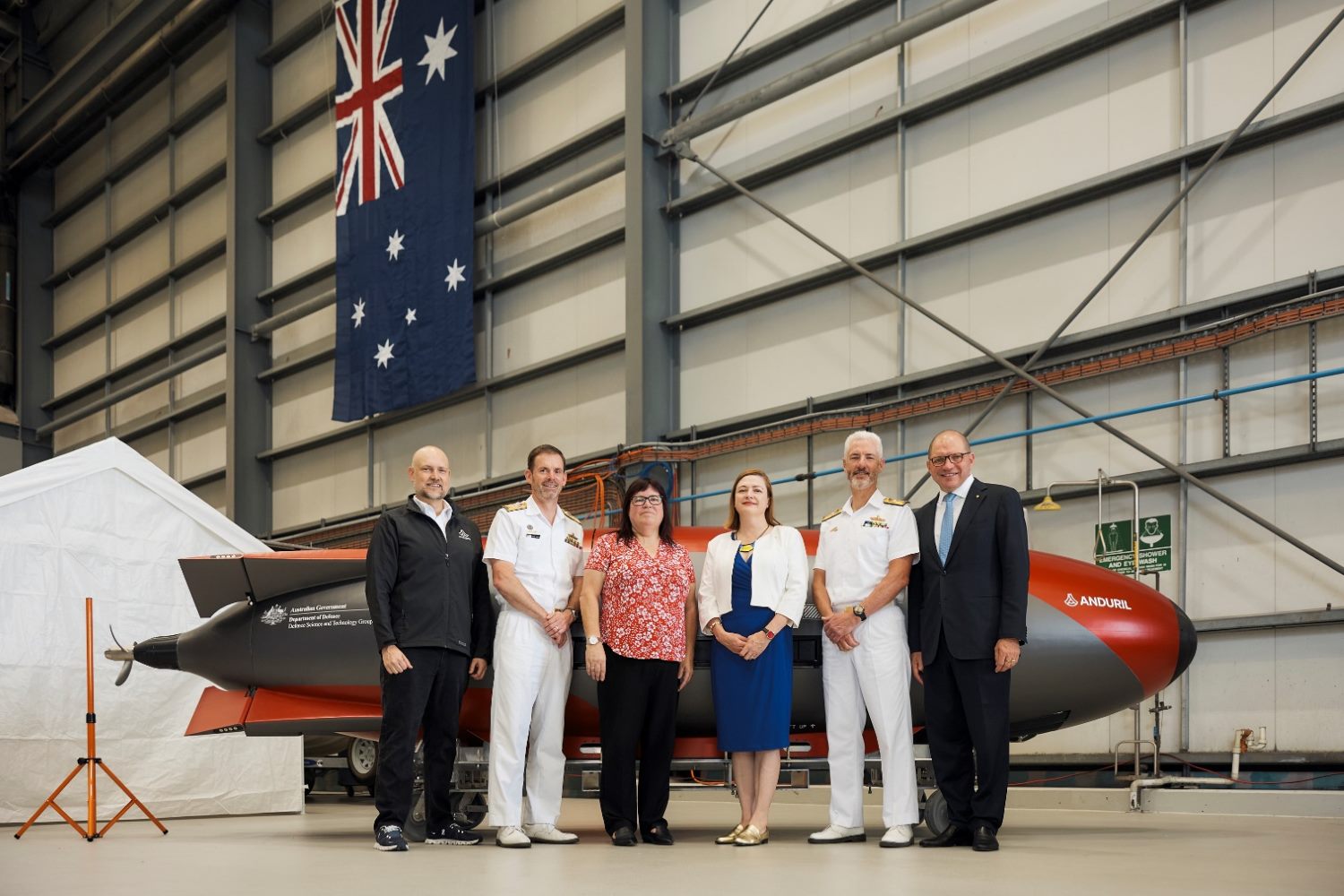
From $10 Million to “Unicorn” Status: Anduril’s Meteoric Rise
In terms of revenue, Anduril Industries has experienced remarkable revenue growth since its inception. Within just 20 months of operation, the company generated $10 million in revenue, a testament to its rapid success.
This growth trajectory continued, with Anduril surpassing the significant milestone of $100 million in revenue within four years. In 2021, rumors circulated that the company had achieved an impressive $150 million in revenue. Such substantial growth can be attributed to the unique combination of deep sectoral experience and Silicon Valley expertise brought together by Anduril’s founding team.
Additionally, the company’s ability to scale is evident in its expanding workforce, which grew from 700 to 1,100 employees over the course of 2022.
Anduril Industries’ commitment to innovation is exemplified by its notable contract wins. In January 2022, the company secured a significant partnership with the US Special Operations Command, leading the way in the integration of counter-drone systems.
This prestigious contract, valued at up to $1 billion over a decade, positions Anduril as a key player in delivering cutting-edge unmanned counter systems for special operations forces. This accomplishment highlights the trust and recognition that Anduril has gained within the defense community, further establishing its reputation as a reliable and innovative defense technology provider.
As a privately held company, Anduril Industries garnered significant attention and support from investors. With over $385 million in funding from prominent investors such as Andreessen Horowitz and Founders Fund, Anduril demonstrated its appeal and potential in the defense technology space.
The impressive valuation of over $1 billion bestowed upon Anduril further solidified its position as a standout player in the startup world. Reaching “unicorn” status, a term used to describe privately held startups valued at $1 billion or more, Anduril attracted attention and generated excitement in both the investment community and the broader technology sector.
While Anduril Industries has achieved remarkable success in the defense technology industry, the company is not without its challenges. Privacy and ethical concerns surround the development of advanced surveillance technologies, raising questions about individual privacy rights and the responsible use of AI-powered systems.
Moreover, the highly competitive nature of the industry poses a threat, as established defense contractors and technology companies invest heavily in research and development, potentially disrupting Anduril’s market position. The company’s reliance on government contracts also exposes it to risks, as shifts in defense spending priorities or budget constraints could impact its revenue.
Additionally, navigating complex regulatory frameworks and compliance requirements presents ongoing challenges for Anduril, as it must stay compliant with evolving regulations and export controls.
Lastly, the company faces the task of managing public perception and addressing concerns regarding the responsible use of its technologies, transparency, and potential impacts on civil liberties. These challenges underscore the need for Anduril to navigate a complex landscape while maintaining its innovative edge.
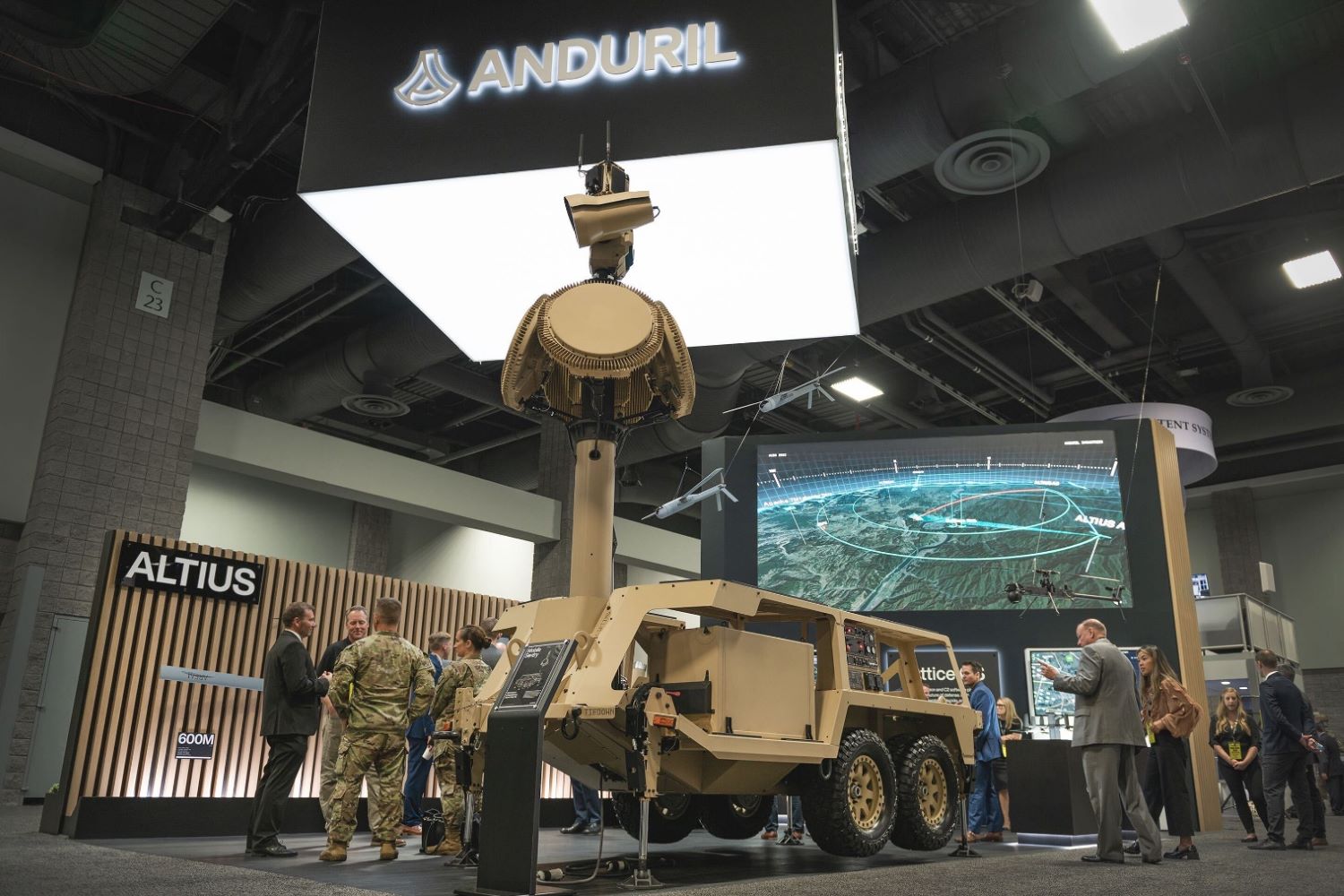
Besides, in discussions about leadership in defense technology and innovation, Luckey acknowledges that while the United States currently leads in military operations, it is falling behind in critical areas such as autonomy and artificial intelligence.
He points to China’s structural advantages: “I think China has structural advantages over the United States because they’re willing to surveil their entire population and use it as a training system for their artificial intelligence”
This observation underscores the need for the United States to invest in emerging technologies to maintain its position as a leader in defense innovation.
The Bottom Lines
Anduril Industries, with its relentless pursuit of technological advancement and commitment to creating a safer world, has established itself as a prominent player in the defense and security industry.
With its unwavering focus on innovation, Anduril is poised to continue forging the future of defense technology, driving disruptive change and shaping the defense and security landscape for years to come.


